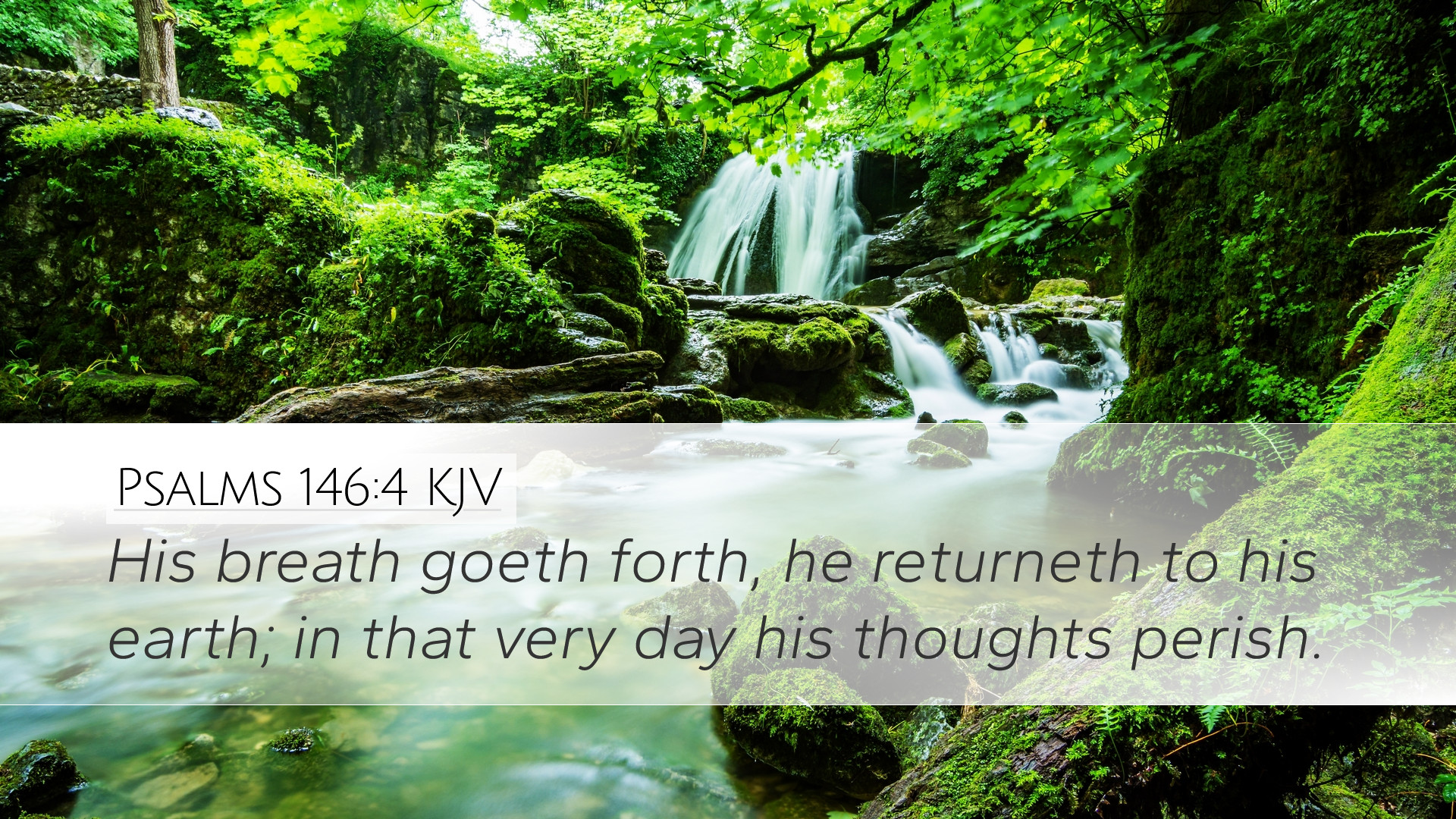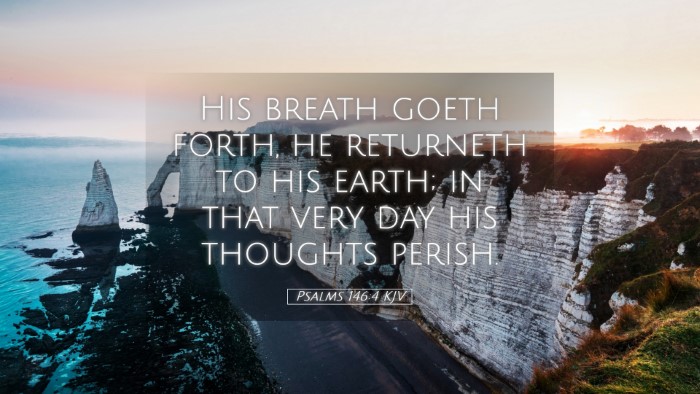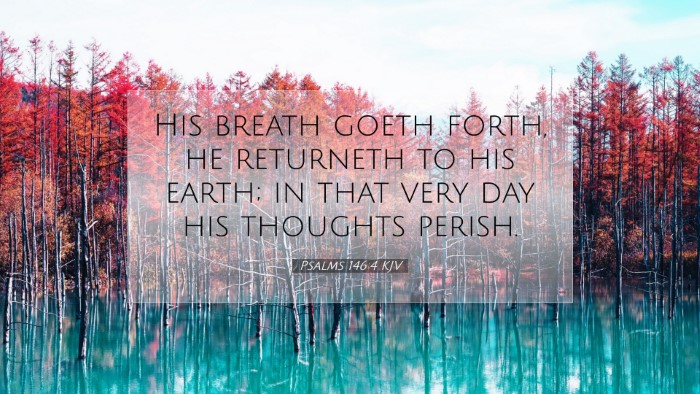Overview
This profound verse encapsulates the transient nature of human life and the futility of placing trust in mortals. Many public domain commentators provide insights into the underlying theology of this passage, focusing on the inevitability of death and the need for spiritual reliance on God rather than human beings.
Commentary Insights
Matthew Henry's Commentary
Matthew Henry emphasizes the brevity of human existence as illustrated in this verse. He notes that the breath of life, which is a divine gift, is taken away at God’s discretion. In this context, Henry argues that the verse serves as a reminder that reliance on human rulers or princes is fraught with risk, as they too will succumb to the fate of mortality.
He asserts that once one breathes their last, their thoughts and plans cease to exist, indicating that without divine favor, all earthly aspirations are ultimately rendered in vain. The underlying advocacy here is to "put not your trust in princes," which leads to the wider ethos of placing complete trust in God, whose purposes and promises endure beyond mortality.
Albert Barnes' Notes
Albert Barnes adds another layer by interpreting 'His breath goeth forth' as not merely a biological function but a spiritual declaration of dependence on God. He points out that the verse captures the moment of death transition and suggests that human thoughts and designs that are disassociated from divine will become meaningless.
Barnes elaborates that this passage teaches believers to look heavenward, for the hopes of man are transient. He emphasizes that the thoughts of men perish when they die; they cannot carry their earthly plans beyond this life. Hence, he encourages readers to focus on spiritual eternalities, which are preserved in God’s unfailing promise.
Adam Clarke's Commentary
Adam Clarke highlights the Hebrew textual nuances and provides an analysis of the poetic structure. He confirms that the "earth" refers metaphorically to the earthly realm as opposed to the divine. Clarke explains that the mortality of man should provoke thoughtful consideration of our temporal condition compared to God’s eternal nature.
Clarke urges readers to recognize the insufficiency of human power and resources, suggesting that those who lean exclusively on human institutions will ultimately find themselves disappointed. This verse acts as a moral and spiritual exhortation to direct one's thoughts and trust toward the everlasting God rather than ephemeral leaders.
Theological Implications
The profound implications of Psalm 146:4 resonate deeply within the broader theological discourse. It underscores the doctrine of human finitude, prompting reflections upon mortality that are significant for pastoral care, spiritual formation, and theological education.
- Human Limitations: The verse succinctly expresses the limitations imposed on human beings, highlighting that life is fleeting and that any achievements or thoughts accumulated will not follow beyond death.
- The Nature of Trust: The commentary stresses the importance of whom to trust in life. Encouraging believers to redirect their dependents from humans to God underscores the call for a faithful relationship that transcends mortality.
- Eternal Perspective: Engaging with this verse allows pastors and theologians to cultivate an eternal perspective among their congregations, focusing on the lasting impact of spiritual pursuits over temporary worldly ones.
Conclusion
Psalms 146:4 encapsulates a pivotal message about the fleeting nature of human aspirations in the face of death. Through the insights of historic commentaries, readers are invited to a deeper understanding of their mortality and the need to trust in God above all else. This passage is not merely a reflection on death but a call to seek the eternal, advocating for a faith that transcends human limitations.


